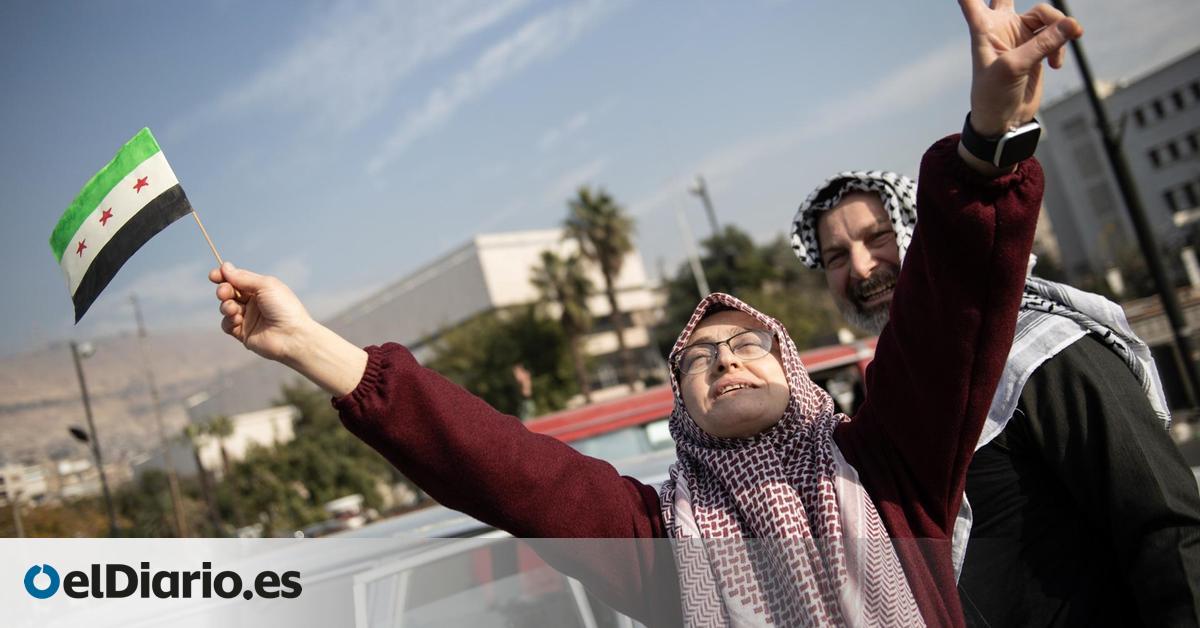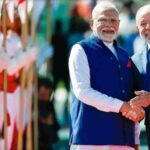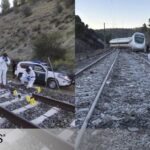
The Syrian flag with the three red stars has flown again in Damascus, as it did in the 2011 demonstrations against Bashar Al Assad’s regime, but this Sunday it did so without fear. The president left the capital early in the morning after armed opposition groups surrounded it on Saturday, and his armed and security forces withdrew without resistance.
Al Assad’s departure has opened the door to a transition of power that, for the moment, is being peaceful, but which has great challenges ahead. The Russian Foreign Ministry confirmed this Sunday that the president had left the country after holding negotiations with the insurgents and ordering that a peaceful transition be facilitated. Hours later, Moscow confirmed that the president and his family have been welcomed by Russia, which had been the regime’s main ally since its military intervention in the conflict in 2015.
On the streets of Damascus and other Syrian cities, citizens have come out to celebrate as rumors have been confirmed that Assad was gone and, with him, more than 20 years of repression, sectarian discrimination and persecution of critical voices. Shouting “Allah is great” and other slogans against the former president, Syrians this Sunday celebrated a freedom that already seemed unattainable after almost 14 years of armed conflict.

But joy is also mixed with fears for what will come from now on in a country destroyed by war, plunged into misery and deeply divided. Different groups could seek revenge or impose their dominance over the rest — as the Alawite minority of the Al Assad family did for decades.
Promises for peaceful and inclusive transition
The coalition of Islamist groups that has conquered Damascus and expelled the Syrian dictator from power, led by the Levant Liberation Organization (Hayat Tahrir al Sham, in Arabic), has been quick to promise a peaceful transition from which no one will be excluded. , as well as respect for religious minorities, especially those that have been associated with the regime, such as Alawites and Christians.
The man who has become the visible face of the revolt, Abu Mohamed al Jolani, leader of the Organization (which was created from the Al Qaeda affiliate in Syria), wanted to send messages of tranquility in this regard and had ordered to his men: “Enter Damascus with modesty, treat your people and your people well.”

Both Al Jolani and the coalition of armed groups, grouped in Military Operations, have insisted that public and private properties in the capital be preserved, and that State institutions not be attacked because they belong to all Syrians and not exclusively to the Syrians. regime. The jihadist leader – who has been trying to show moderation for years, but who has not left the terrorism blacklists and for whom the US is offering 10 million dollars – has stated that this is the beginning of “a new era for the Muslim nation and the entire region” of the Middle East, during a visit to the historic Umayyad Mosque in Damascus, where the former Syrian president used to go to pray on designated religious dates.
For his part, Hadi Al Bahra, president of the Syrian National Coalition – the main opposition body in exile – has explained to elDiario.es that Military Operations is now in charge on the ground, because it is the one that has taken control of the territory, in a rapid and effective offensive against the regime, whose armed and security forces surrendered and withdrew without offering resistance. “The current Government will continue its work until the transition begins. State employees are going to continue carrying out their work,” he stated in a statement on the sidelines of the Doha Forum, held this weekend in the Qatari capital. “The bureaucrats and technocrats are going to remain, but we are going to have to change the ministers and the prime minister,” he added. Like the armed rebels, Al Bahra has stressed that state institutions belong to all Syrians.
Precisely, the Syrian Prime Minister, Mohamed Ghazi al Jalali, remains in Damascus and extended his hand to the armed opponents shortly after they broke into the capital, forcing Al Assad to flee. According to Al Jalali, the institutions will continue to function until they are transferred to the new government, whose formation and characteristics are still unclear, but which everyone seems to agree that it should represent all armed and political formations, and religious and religious communities. ethnic groups of diverse Syria.

Al Bahra has said that the roadmap for the transition is set by UN Security Council resolution 2254 of 2015, which establishes the creation within six months of a “non-sectarian, inclusive and credible” governing body. , and the holding of “free and fair elections” within 18 months, all within the framework of a “political process led by the Syrians” but with the support of the United Nations.
The veteran opposition member, originally from Damascus, has also stated that the Army will be “restructured” and that it will include those soldiers of the regime “who have not committed crimes” and the Free Syrian Army, created at the beginning of the 2011 revolt by the uniformed men who deserted so as not to repress their own people. The Free Syrian Army has also participated in the offensive against Al Assad, although for years it has played a less prominent role compared to armed groups with an Islamist tendency, which are more radical in their ideas and practices.
Al Bahra has not expressed concern about these trends and has stressed that the armed groups agreed to act in accordance with a “code of ethics” during their offensive. “These rules ensure that there is no extremism, bad behavior or violations of human rights,” he explained, adding: “It is working very well.”
So far, there have been no reports of abuses or crimes by the rebels who have conquered Syria’s most important cities, one after another, between late November and this weekend. Videos have circulated on social networks in which Syrian Christians can be seen celebrating the fall of the regime that, supposedly, protected them from the Islamists.
“Our goal is to have a united Syria, not divided, and we want to unite everyone under a single Government,” Al Bahra stressed, referring not only to the Syrian population but to the three administrations that have governed the areas in recent years. that were escaping regime control in northern and eastern Syria.
The Kurdish question and other challenges
The self-proclaimed Kurdish administration controls a large territory in northeastern Syria and represents one of the biggest obstacles, due to rivalries between the Syrian Kurds and the Turkish-backed opposition (such as the Syrian National Coalition), Islamist insurgents and other actors in the conflict.
The Turkish Government will have a lot to say regarding the Syrian Kurds, against whom it has intervened militarily in Syria to keep them away from its border, since it considers them a threat and a branch of the Turkish Kurdistan Workers Party (PKK). The Turkish Foreign Minister, Hakan Fidan, declared this Sunday at the Doha Forum that his Government is in contact with all groups “to ensure that terrorist organizations do not take advantage of the situation” after the fall of the Al regime. Assad.
Fidan has expressly named the jihadist organization Islamic State and the Syrian Kurdish militias People’s Protection Units (YPG), which he equates with the PKK, considered terrorist and banned by Turkey. “No branch of the PKK in Syria can be considered a legitimate interlocutor for holding talks in Syria, because its ranks are full of international terrorist fighters from Turkey, Iraq and Iran,” he denounced.

The Foreign Minister has said that the new Syrian government “should not pose a threat to its neighbors, quite the contrary,” adding that the time has come for the refugees who are in the border countries (Turkey, Lebanon and Jordan ) can return to their homes – one of Ankara’s main demands in recent years, since it hosts some 3 million Syrians. Thousands of them celebrated the fall of the Al Assad regime this Sunday in Istanbul.
The United Nations special envoy for Syria, Geir O. Pedersen, has outlined some of the challenges the country now faces. Among them, he highlighted the fact that Hayat Tahrir al Sham is on the list of terrorist groups: “It is very important that we see developments on the ground that demonstrate that it can achieve a transition towards a democratic future in Syria,” he said. at a press conference within the framework of the Doha Forum. “We are closely following everything that happens on the ground, what all the factions do, and there are a series of procedures that they will have to follow if they want to get off that list” of terrorist groups, he added.
“The most important thing right now is to avoid bloodshed, to have a dialogue and a process that includes all communities, and preparations for the transition,” said Pedersen, who said he has a “cautious hope”: “ This can be the beginning of truth of a new Syria, let us hope that there is the will to all work together towards it.”
Source: www.eldiario.es

